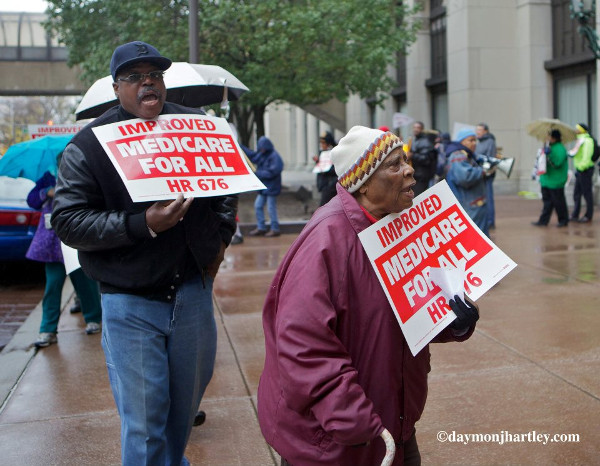
PHOTO/DAYMONJHARTLEY.COM
DETROIT, MI—The UAW Voluntary Employee Beneficiaries Association (VEBA) in the end is just a hoard of money disconnected from production. That hoard must be gambled on penny stocks and junk bonds in the hope of hitting it lucky. That is the consequence of UAW autoworker retiree healthcare being permanently separated from UAW contract obligations and the corporate accounting regulations governed by the Financial Accounting Standards Board.
How we got here
In December of 1992, the Financial Accounting Standards Board issued a rule that all publically traded companies must account for retiree health care benefits on an accrual basis. They must carry all of their future retiree health care costs on their books at the present day cost as an imaginary liability.
In 2005, the UAW was confronted with this imaginary liability created in 1992 and the 2003 contract was reopened. The UAW agreed to GM and Ford’s offer to begin funding internal VEBAs at those companies in order to eventually shed themselves of their contractual obligation to provide healthcare for their retirees.
The 2007 contract resulted in the underfunded VEBA that would open its doors on January 1, 2010, the freezing of wages and pension benefits for employees hired before September 27, 2007 and no pension or retiree healthcare benefits for employees hired on or after that date. In addition, the two-tier wage system was established in order to increase their profits. And the UAW agreed to never negotiate for the retirees in the future.
VEBA and the Great Recession.
Early in 2009, Congress and the Administration demanded that the UAW reopen the 2007 contracts at all three companies and accept 50% of the underfunded VEBA in company stock in exchange for the partial nationalization of the GM.
Before the ink dried, GM and Chrysler filed for bankruptcy. All three companies began shedding their overcapacity. GM ownership transferred to the Government and the GM VEBA. Chrysler ownership was transferred to Fiat and the Chrysler VEBA. And the Ford VEBA received 50% of its funding in the form of Ford stock. This increased burden of underfunding is making it even more cash poor.
In the 2011 contract negotiations with the auto companies, no funding gains to the VEBA were achieved. The company waived the 2007 agreement with the union— NO MORE BARGAINING FOR RETIREES.
In the words of one retiree after the 2011 contracts were ratified: “You mean we didn’t get anything?”
There is an alternative
The healthcare of all of us, not just UAW auto retirees, is being separated from production to increase profitability. We are in a period of economic transformation. Machines that made us more productive are being replaced by machines that produce with little or no human labor involved.
We must support an independent political direction for a new social relationship based on production and distribution for the general wellbeing of everyone and not the select few owners of the new means of production.
